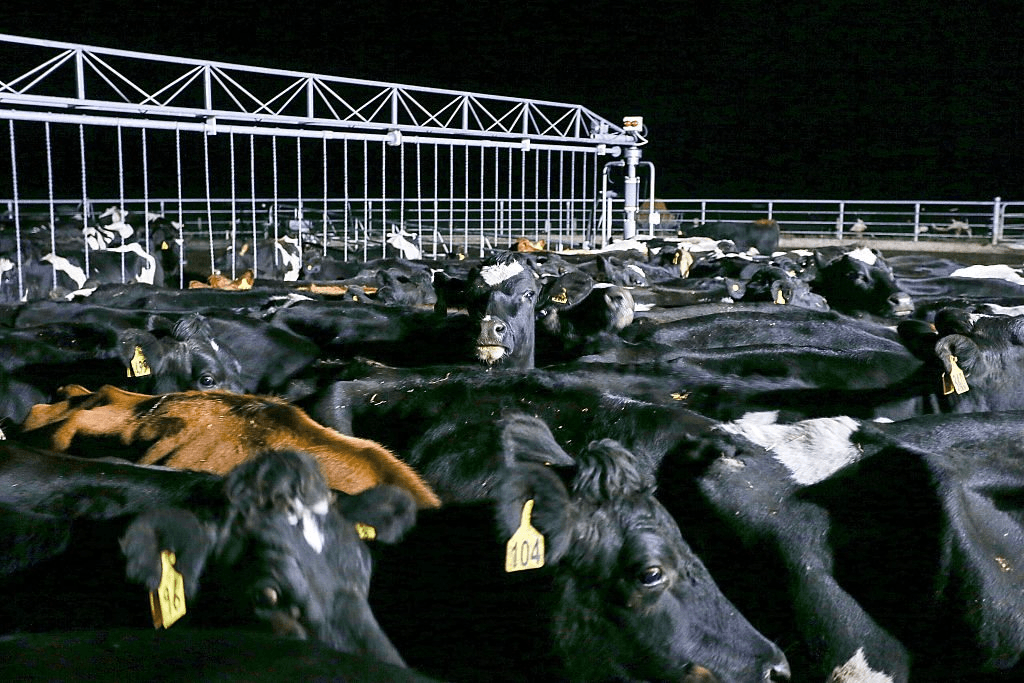Good morning, and welcome to The Bulletin. In today’s edition: Curbs on cow numbers likely to come, the education minister is pointing to a billion dollar shortfall, and we’ve got an exclusive story about so-called ethical fashion label World.
The government might be about to put curbs on further dairy intensification, in order to raise water quality. The news came off the back of an interview environment minister David Parker did with TV One’s Q+A, and has already raised the hackles of National, who say such a move against dairying could have severe effects on the wider economy.
The Country reports that Parker’s move is part of a reformed National Policy Statement on water. David Parker hasn’t yet done the economic analysis on what such a move would mean, but he has signalled he wants to see more cropping and horticulture rather than dairying.
With this in mind, this recent piece from NZ Farmer is a good one to look back on, about ‘peak cows.’ Basically, the analysis says that Fonterra has a problem in which their business plan relies on growing milk production, but the number of cows the country can support has basically been maxed out.
The stories that have been playing out over health funding in recent months could be about to have a sequel in education, reports Radio NZ. Minister Chris Hipkins has accused the previous government of leaving him a billion dollar shortfall to deal with, further dampening expectations of largesse in the upcoming budget.
In a similar story, also on Radio NZ, Hipkins has released a strategy to attract more people to a career in teaching. There’s a drastic shortage looming, and one major plan the minister has is to reduce the amount of compliance paperwork teachers have to churn through. Of course, the big one is and will always be pay – negotiations are coming up this year, and a big pay rise will send a signal to young people considering teaching as a career that it’s a good option.
We’ve got an exclusive, and absolutely must-read story on The Spinoff today about supposedly ethical NZ fashion label World. Rather than summarise it, here’s the opening paragraph:
“She’s the highly critical champion of New Zealand fashion, calling out competitors for saving money by making their clothes in substandard conditions overseas instead of paying higher wages at home. But for the past seven years, Denise L’Estrange-Corbet’s WORLD brand has been selling t-shirts, sweatshirts and sweatpants manufactured in Bangladesh and China and bought through AS Colour.”
Wellington’s morning traffic rush is getting worse, according to reporting from Stuff. The crunch point, as any citizen of the capital will know, is traffic coming into the CBD from the north of the city. Peak congestion periods are starting earlier, and running for longer into the morning. Proposals on how to alleviate it will be coming from Let’s Get Wellington Moving in June.
The government has thanked Malaysia’s government for intercepting a people–smuggling tanker allegedly bound for New Zealand, reports the NZ Herald. If the tanker, carrying more than 100 Sri Lankans, was heading to New Zealand, that would make it a highly unusual incident. As the Herald story notes, “In December last year, the Government said there had been no suggestion of a credible attempt by people-smugglers to reach these shores by boat.” An Australian refugee advocate told Radio NZ, that given the poor shape the vessel was in, there was no way it could have made it to New Zealand.
Both of the declared candidates for the Northcote by-election went on Newshub Nation, and voters in the electorate should have a look at it. I don’t buy the analysis that the vote will be a referendum on the government as a whole, or the leadership of Jacinda Ardern vs Simon Bridges. But it could be a referendum on the government’s transport plan, which as the debate showed will dominate the by-election campaign.
Auckland house prices are starting to noticeably stagnate and it’s likely to continue, according to this analysis on Noted. Among the causes listed, an intriguing one that jumps out is the Australian Royal Commission into banking. Because of the scrutiny the parent companies of local banks are under, they have to lend to the absolute letter of the law, which may cause a credit crunch. Not that our banks would have been bending the law beforehand of course.
Dozens of Southlanders have protested the closure of Invercargill’s Museum and Art gallery, reports the Southland Times on their front page this morning. The protest took the form of a mock-funeral, to mourn the lost spirit of the museum, which has been closed since mid-April.
I was very glad to be alerted to the existence of Crux.org.nz by Mediawatch.
The Bulletin is The Spinoff’s acclaimed, free daily curated digest of all the most important stories from around New Zealand delivered directly to your inbox each morning.
